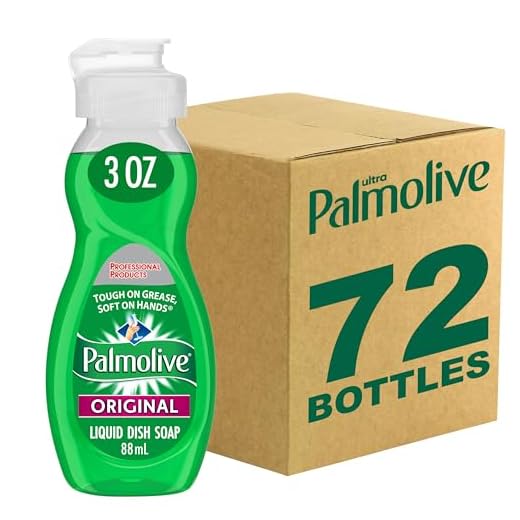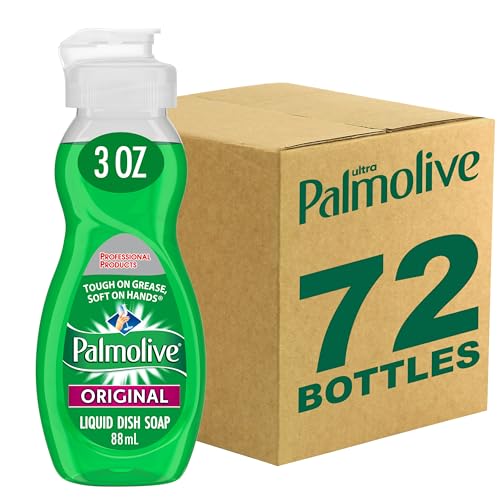



Cast iron skillets are prized for their durability, heat retention, and even cooking. They have been a staple in kitchens for centuries, passed down from generation to generation. However, when it comes to cleaning them, many people are surprised to learn that traditional methods may do more harm than good.
Unlike non-stick pans or stainless steel cookware, cast iron requires special care to maintain its seasoning – a layer of polymerized oil that gives it its non-stick properties and prevents rust. Cleaning a cast iron skillet with soap and water, as you would with other pans, can strip away this protective layer and leave the pan vulnerable to rusting.
So, why can’t you clean a cast iron skillet? The answer lies in the unique properties of cast iron and the need to preserve its seasoning. Instead of using soap and water, the recommended method for cleaning a cast iron skillet is to use hot water and a stiff brush or sponge. This will help remove any food residues while preserving the seasoning.
After cleaning, it’s important to thoroughly dry the skillet to prevent rusting. Some people recommend placing it on a stove over low heat to evaporate any moisture, while others suggest towel-drying and then applying a thin layer of oil to further protect the skillet. Whichever method you choose, the key is to keep the skillet dry and well-seasoned.
By understanding the reasons behind the need for special care when cleaning cast iron skillets, you can ensure that your skillet will last for years to come and continue to provide delicious meals with each use.
The Myth Behind Cleaning
There is a common myth surrounding cast iron skillets that they should never be cleaned with soap. This belief stems from the idea that soap will remove the seasoning, the layer of polymerized oil that gives the skillet its non-stick properties. However, this myth is not entirely true.
While it is true that harsh cleaning agents, such as heavy-duty soaps and abrasive cleaners, can strip away the seasoning, regular dish soap is perfectly safe for cleaning a cast iron skillet. In fact, using soap can help remove any stuck-on food particles or grease, making the cleaning process much easier.
To clean a cast iron skillet, simply use a small amount of mild dish soap and warm water. Gently scrub the skillet with a soft sponge or brush, making sure to remove any food residue. Rinse the skillet thoroughly and dry it completely to prevent rusting.
Another common cleaning myth is that cast iron skillets should never be soaked in water. While prolonged soaking can potentially damage the skillet, a short soak can actually be beneficial for loosening stuck-on food. Just make sure not to leave the skillet submerged for more than a few minutes.
After cleaning, it is important to properly dry the skillet to prevent rust. To do this, place the skillet on a stovetop burner on low heat for a few minutes to evaporate any remaining moisture. Then, apply a thin layer of oil to the skillet while it is still warm to help maintain the seasoning.
Overall, the myth that cast iron skillets cannot be cleaned with soap is just that – a myth. With proper care and cleaning, a cast iron skillet can provide many years of reliable cooking performance.
Misconceptions About Soap
One of the biggest myths surrounding the cleaning of cast iron skillets is that soap should never be used. Many people believe that using soap on a cast iron skillet will ruin the seasoning and make the pan unusable. However, this is not entirely true.
The truth is that soap can be used to clean a cast iron skillet. Soap is an effective tool for breaking down and removing grease and other food residues. Using soap can help to ensure that your cast iron skillet is thoroughly cleaned and free from any leftover debris.
While it is true that soap can remove some of the seasoning from a cast iron skillet, this does not mean that the pan is ruined. Seasoning on a cast iron skillet is simply a layer of polymerized oil that has baked onto the surface of the pan. It provides a natural, non-stick coating that helps to prevent food from sticking and also adds flavor to your dishes.
Using soap to clean a cast iron skillet will not completely strip away the seasoning if done correctly. It is important to use a mild dish soap and avoid harsh abrasives or scrub brushes that can scratch the surface of the pan. After washing with soap, it is also important to thoroughly dry the skillet to prevent any potential rusting.
Ultimately, the use of soap on a cast iron skillet comes down to personal preference. Some people prefer to simply wipe out the skillet with paper towels or a sponge to preserve the seasoning, while others are comfortable using soap for a more thorough clean. As long as the skillet is properly cared for, including regular seasoning and drying, using soap should not cause any harm.
In conclusion, the belief that soap should never be used to clean a cast iron skillet is a misconception. Soap can be safely used to clean a cast iron skillet, as long as it is done correctly and followed up with proper care and seasoning.
Patina: The Protective Layer
Cast iron skillets develop a natural protective layer called a patina over time. This patina is formed when the oil or fat used during cooking starts to polymerize and bond to the surface of the skillet. The patina creates a non-stick surface and helps to prevent rust and corrosion.
One of the main reasons why you shouldn’t clean a cast iron skillet with soap or harsh abrasives is because it can strip away this valuable patina. Soap can break down the polymerized oils and fats, removing the protective layer and exposing the skillet to potential rust and corrosion.
Instead, it is recommended to clean a cast iron skillet using gentle methods, such as using hot water and a stiff brush or a plastic scraper, to remove any food residue. This allows the patina to remain intact while still maintaining cleanliness.
If you do need to remove stubborn food particles, you can use kosher salt or a mild abrasive like baking soda. These substances can help to loosen the debris without damaging the patina. After cleaning, be sure to dry the skillet thoroughly to prevent any moisture from causing rust.
It’s important to note that the patina will naturally darken and enhance in its non-stick properties with each use. Regular use and proper care will continue to build and maintain the protective layer, making your cast iron skillet a valuable kitchen tool that will last for generations.
Avoiding Scratches and Abrasion
When cleaning a cast iron skillet, it’s important to avoid using abrasive materials that can scratch or damage the surface. Cast iron is known for its durability, but it can still be vulnerable to scratches if you’re not careful.
Here are some tips to help you avoid scratches and abrasion while cleaning your cast iron skillet:
1. Use Soft Materials
Instead of using harsh brushes or scouring pads, opt for softer materials like a gentle sponge or cloth. These materials can effectively remove food residue without scratching the surface of your skillet.
2. Avoid Metal Utensils
When cooking with a cast iron skillet, it’s best to avoid using metal utensils that can scrape the surface. Instead, use wooden or silicone utensils that are less likely to cause scratches.
Furthermore, be cautious when using utensils to stir or flip food in the skillet, as aggressive movements can also lead to scratches.
By following these tips, you can maintain the integrity of your cast iron skillet and ensure its longevity. Remember, a well-cared-for cast iron skillet can last for generations!
Natural Remedies for Stuck-On Food
If you have a cast iron skillet with stuck-on food, there are several natural remedies you can try before resorting to harsh chemicals or excessive scrubbing. These remedies are not only effective but also eco-friendly, making them a great choice for anyone looking to clean their skillet in a more environmentally conscious way.
One of the most effective natural remedies for removing stuck-on food from a cast iron skillet is using coarse salt and oil. Simply sprinkle a generous amount of coarse salt onto the skillet and use a paper towel or cloth to scrub away the stuck-on food. The salt helps to break down the food particles while the oil provides lubrication, making it easier to remove the residue.
Another natural remedy that can be effective is baking soda and water. Create a paste by mixing baking soda with a small amount of water until it forms a thick consistency. Apply the paste onto the stuck-on food and let it sit for a few minutes. Then, use a sponge or scrub brush to gently scrub away the residue. The baking soda acts as a gentle abrasive, helping to lift the stuck-on food without damaging the skillet.
Vinegar can also be used as a natural remedy for stuck-on food. Fill the skillet with equal parts water and vinegar and bring it to a boil. Let it simmer for a few minutes before removing it from the heat and allowing it to cool slightly. Use a sponge or scrub brush to scrub away the residue. The acidity of the vinegar helps to break down the stuck-on food, making it easier to remove.
If the stuck-on food is particularly stubborn, you can try using a mixture of vinegar and baking soda. Sprinkle a generous amount of baking soda onto the stuck-on food and then spray or pour vinegar over it. The mixture will create a fizzing reaction that can help to loosen the food particles. After letting it sit for a few minutes, use a sponge or scrub brush to scrub away the residue.
| Natural Remedies | Instructions |
|---|---|
| Coarse salt and oil | Sprinkle salt onto the skillet and scrub with a paper towel or cloth |
| Baking soda and water | Create a paste and apply it onto the stuck-on food, then scrub gently |
| Vinegar | Fill the skillet with water and vinegar, simmer, then scrub |
| Vinegar and baking soda | Sprinkle baking soda, pour vinegar, let it fizz, then scrub |
These natural remedies can help you effectively remove stuck-on food from your cast iron skillet without causing any damage. Remember to always dry the skillet thoroughly after cleaning to prevent rusting. With these simple remedies, you can enjoy using your cast iron skillet for years to come.
FAQ
What is the best way to clean a cast iron skillet?
The best way to clean a cast iron skillet is to use hot water and a stiff brush to scrub away any food particles. Avoid using soap, as it can strip away the skillet’s seasoning. After cleaning, make sure to thoroughly dry the skillet to prevent rusting.
Can I use soap to clean a cast iron skillet?
No, it is not recommended to use soap to clean a cast iron skillet. Soap can strip away the skillet’s seasoning, which helps to create a natural non-stick surface. Instead, use hot water and a stiff brush to scrub away any food particles.
Why is it important to dry a cast iron skillet thoroughly after cleaning?
It is important to dry a cast iron skillet thoroughly after cleaning to prevent it from rusting. Cast iron is prone to rusting when exposed to moisture. To ensure that the skillet is completely dry, place it on a stove burner over low heat for a few minutes or wipe it dry with paper towels.










